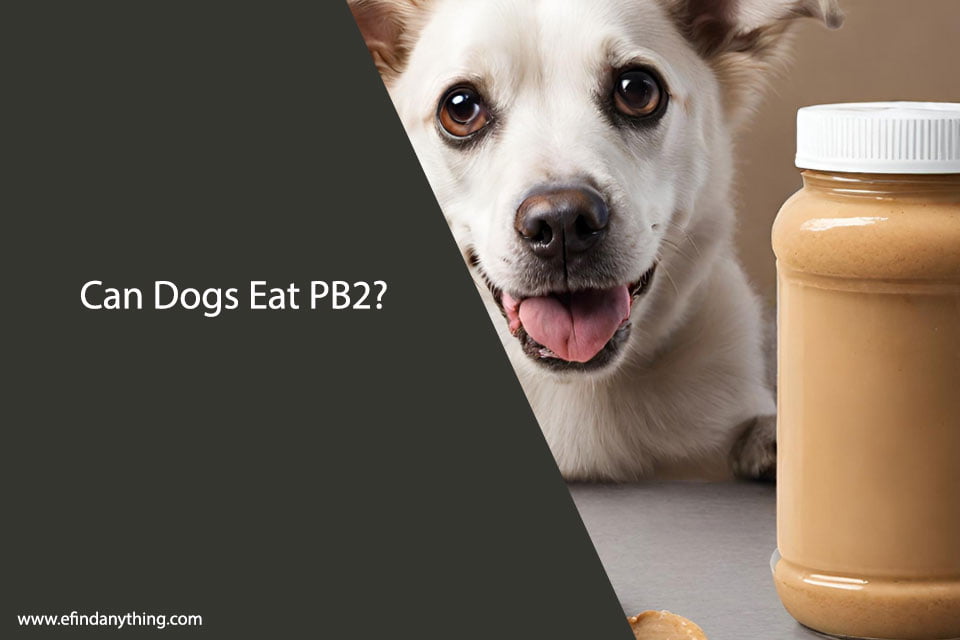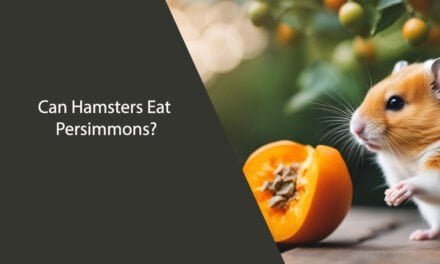Dogs are known for their love of food, and as pet owners, we want to make sure that our furry companions are eating a balanced and healthy diet. One question that often arises is whether dogs can eat PB2, a powdered peanut butter that has become increasingly popular among health-conscious individuals.
PB2 is made by pressing roasted peanuts to remove most of the oil and fat, resulting in a powdered form of peanut butter. It is often used as a lower calorie and lower fat alternative to traditional peanut butter. While it may be a healthy option for humans, it is important to consider whether it is safe for dogs to consume.
As responsible pet owners, we want to ensure that we are not feeding our dogs anything that could potentially harm them. In this article, we will explore whether PB2 is safe for dogs to eat, and if so, in what quantities. We will also discuss the potential benefits and risks of feeding PB2 to our furry companions.

Table of Contents
What is PB2?
PB2 is a powdered peanut butter that is made by pressing roasted peanuts and removing most of the oil, resulting in a powder that is lower in fat and calories than traditional peanut butter. It was created as a healthier alternative to regular peanut butter and has gained popularity among health-conscious individuals.
PB2 is available in both regular and chocolate flavors, and can be used in a variety of ways, such as mixed with water to create a spread, added to smoothies, or used as a baking ingredient. It is also commonly used as a protein source in vegan and vegetarian diets.
One serving of PB2 (2 tablespoons) contains approximately 45 calories, 1.5 grams of fat, and 5 grams of protein. It is also a good source of fiber, with 2 grams per serving.
While PB2 is lower in fat and calories than traditional peanut butter, it is important to note that it still contains peanuts and should be consumed in moderation. Additionally, some brands of PB2 may contain added sugar or salt, so it is important to check the label before purchasing.
Can Dogs Consume PB2?
PB2 is a powdered peanut butter that is popular among health-conscious individuals. It is a low-fat, low-calorie alternative to traditional peanut butter. However, when it comes to dogs, it is important to consider whether or not PB2 is safe for them to consume.
While peanut butter is generally safe for dogs, PB2 may not be the best option. This is because PB2 often contains added ingredients, such as sugar and salt, which can be harmful to dogs in large quantities.
Additionally, some PB2 products may contain xylitol, a sugar substitute that is toxic to dogs. Xylitol can cause a rapid insulin release, leading to hypoglycemia (low blood sugar), seizures, and even liver failure.
Therefore, it is important to check the ingredients list carefully before giving PB2 to your dog. If the product contains xylitol, it should be avoided at all costs.
In general, it is best to stick with plain, natural peanut butter when giving your dog a treat. If you are unsure about whether or not a particular brand of peanut butter is safe for your dog, it is always best to consult with your veterinarian.
Overall, while PB2 may be a healthy alternative for humans, it is important to exercise caution when giving it to your furry friend. Always read the ingredients list carefully and consult with your veterinarian if you have any concerns.
Benefits of PB2 for Dogs
PB2 is a powdered peanut butter that is made by removing the oil from roasted peanuts. It is a popular alternative to traditional peanut butter because it has significantly fewer calories and fat. PB2 can be a healthy addition to your dog’s diet if given in moderation. In this section, we will discuss the benefits of PB2 for dogs.
Protein Content
PB2 is a great source of protein for dogs. Protein is essential for building and repairing tissues, and it also helps to maintain a healthy immune system. One serving of PB2 contains 5 grams of protein, which is equivalent to the protein content in one egg. Adding PB2 to your dog’s diet can help ensure that they are getting enough protein to support their overall health.
Low Fat
PB2 is a low-fat alternative to traditional peanut butter. One serving of PB2 contains only 1 gram of fat, compared to the 16 grams of fat found in one serving of traditional peanut butter. This makes PB2 a great option for dogs that need to lose weight or maintain a healthy weight. Additionally, a low-fat diet can help reduce the risk of certain health conditions such as pancreatitis and heart disease.
In summary, PB2 can be a healthy addition to your dog’s diet due to its high protein content and low-fat content. However, it is important to remember that PB2 should be given in moderation and should not be used as a replacement for a balanced diet. As always, it is best to consult with your veterinarian before making any significant changes to your dog’s diet.
Potential Risks of PB2 for Dogs
When it comes to feeding our furry friends, it’s important to be aware of the potential risks associated with certain foods. While PB2 may seem like a healthy alternative to regular peanut butter, there are a few things to keep in mind before feeding it to your dog.
Xylitol Toxicity
One of the biggest concerns with PB2 is the presence of xylitol, a sugar substitute that can be highly toxic to dogs. Xylitol can cause a rapid release of insulin, leading to hypoglycemia (low blood sugar), seizures, liver failure, and even death. Even small amounts of xylitol can be dangerous, so it’s important to read the label carefully and avoid feeding your dog any PB2 products that contain this ingredient.
Allergic Reactions
While peanut butter is generally safe for dogs, some dogs may be allergic to peanuts or other ingredients in PB2. Signs of an allergic reaction can include itching, redness, swelling, and even difficulty breathing. If your dog has never had PB2 before, it’s a good idea to start with a small amount and monitor them closely for any signs of an allergic reaction.
In summary, while PB2 may seem like a healthy alternative to regular peanut butter, it’s important to be aware of the potential risks associated with this product. Xylitol toxicity and allergic reactions are two of the main concerns, so it’s important to read the label carefully and monitor your dog closely if you decide to feed them PB2.
Alternatives to PB2 for Dogs
While PB2 is a popular peanut butter alternative for humans, it may not be the best option for dogs due to its added ingredients. Fortunately, there are many other healthy and safe alternatives to PB2 that dogs can enjoy. Here are some options to consider:
Natural Peanut Butter
Natural peanut butter is a great alternative to PB2 for dogs. It contains only peanuts and sometimes salt, making it a healthy and safe option for dogs. However, it is important to avoid peanut butter that contains xylitol, a sugar substitute that is toxic to dogs.
Sunflower Seed Butter
Sunflower seed butter is another great alternative to PB2 for dogs. It is made from roasted sunflower seeds and contains healthy fats and protein. It is also safe for dogs with peanut allergies.
Almond Butter
Almond butter is a healthy and safe alternative to PB2 for dogs. It is made from ground almonds and contains healthy fats and protein. However, it is important to avoid almond butter that contains added sugars or salt.
Coconut Butter
Coconut butter is a tasty and healthy alternative to PB2 for dogs. It is made from ground coconut meat and contains healthy fats and fiber. However, it is important to avoid coconut butter that contains added sugars or salt.
In summary, there are many healthy and safe alternatives to PB2 for dogs, including natural peanut butter, sunflower seed butter, almond butter, and coconut butter. When choosing a peanut butter alternative for your dog, always read the label and avoid added sugars, salt, and xylitol.
Conclusion
In conclusion, while PB2 is a popular peanut butter alternative for humans, it is not recommended to feed it to dogs. PB2 contains xylitol, an artificial sweetener that is toxic to dogs. Even though PB2 does not contain as much xylitol as regular peanut butter, it is still not safe for dogs to consume.
Furthermore, PB2 also contains added salt, which can lead to dehydration and kidney problems in dogs. While small amounts of PB2 may not cause immediate harm to dogs, it is best to avoid feeding it to them altogether.
If you are looking for a safe and healthy treat for your furry friend, there are plenty of dog-friendly alternatives to PB2. Some examples include plain, unsalted peanut butter, fresh fruits and vegetables, and homemade dog treats made with natural ingredients. Always consult with your veterinarian before introducing new foods to your dog’s diet.
Overall, it is important to prioritize your dog’s health and well-being when selecting their food and treats. By making informed choices and avoiding potentially harmful ingredients, you can help ensure that your dog stays happy and healthy for years to come.
Frequently Asked Questions
Are there any risks associated with feeding dogs PB2?
Feeding your dog PB2 in moderation is generally considered safe. However, it is important to keep in mind that PB2 is a processed food and contains added ingredients, such as sugar and salt, which may not be suitable for all dogs. Additionally, some dogs may have peanut allergies, so it is important to monitor your dog for any signs of an allergic reaction.
Can dogs safely consume powdered peanut butter?
Yes, dogs can safely consume powdered peanut butter like PB2, as long as it is given in moderation and does not contain any harmful ingredients. However, it is important to keep in mind that PB2 is a processed food and should not be a substitute for fresh, whole foods in your dog’s diet.
What are the ingredients in PB2 and are they safe for dogs?
PB2 contains roasted peanuts, sugar, and salt. While these ingredients are generally safe for dogs, it is important to keep in mind that sugar and salt should be given in moderation. Additionally, some dogs may have peanut allergies, so it is important to monitor your dog for any signs of an allergic reaction.
Are there any peanut butter brands that are not safe for dogs?
Some peanut butter brands contain xylitol, a sugar substitute that is toxic to dogs. It is important to always check the ingredients list before giving your dog any peanut butter. Additionally, peanut butter that contains added salt or sugar should be given in moderation.
Can dogs eat bananas as a treat?
Yes, bananas can be a healthy and tasty treat for dogs. Bananas are a good source of fiber, potassium, and vitamins. However, like any treat, bananas should be given in moderation and should not replace fresh, whole foods in your dog’s diet.
Is coconut palm sugar safe for dogs to consume?
Coconut palm sugar is a natural sweetener that is often used as a healthier alternative to refined sugar. While coconut palm sugar is generally safe for dogs, it is important to keep in mind that it is still a form of sugar and should be given in moderation. Additionally, some dogs may be sensitive to coconut products, so it is important to monitor your dog for any signs of an allergic reaction.





